A merchant has 21 days to solve a mysterious death in a strange city
We chat to developers Alpixel about A Place For the Unwilling, their game about a city on the brink of destruction.
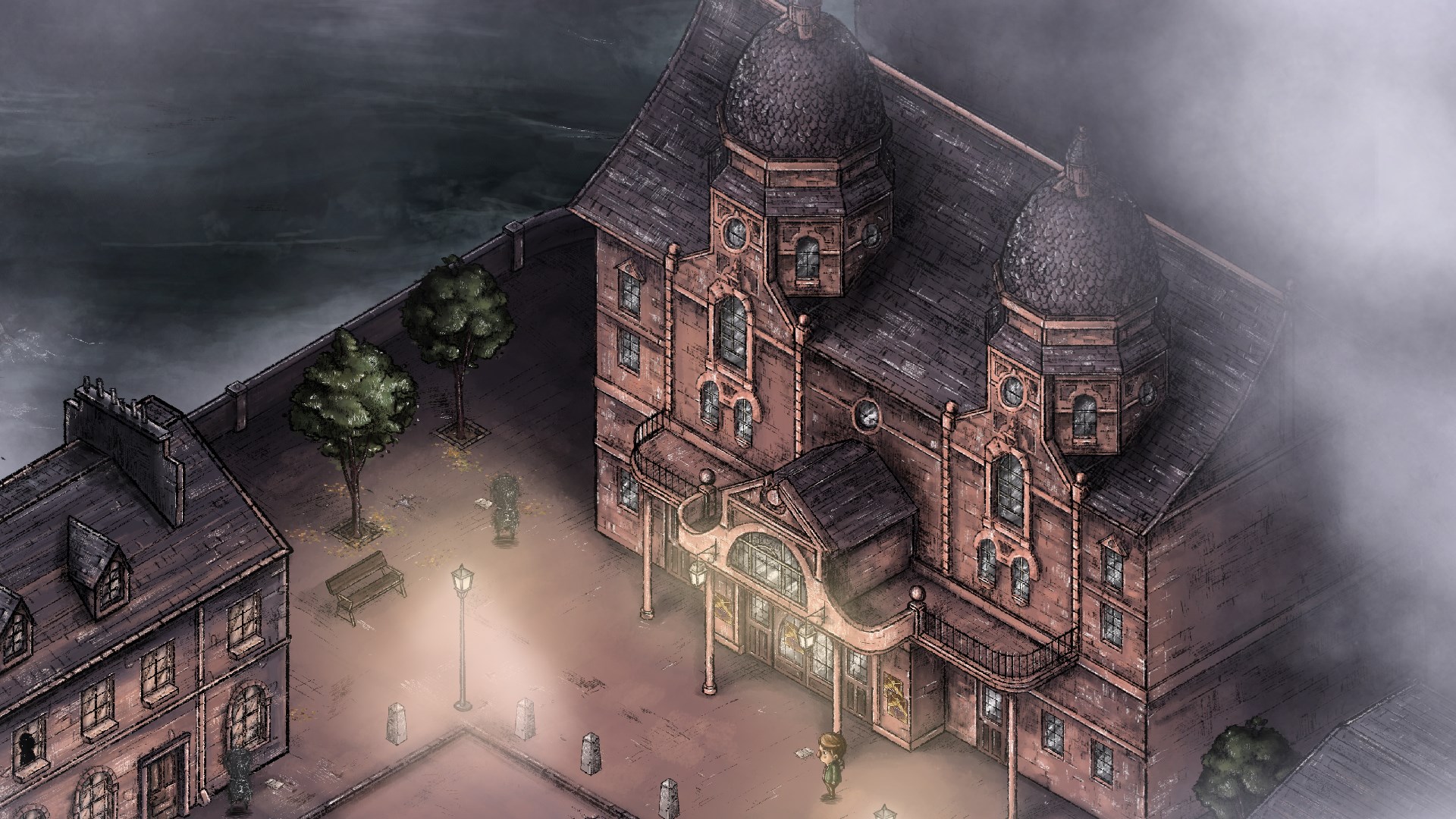
A city shrouded in mist. Cobbled streets and lamplight. Walls that appear to thrum with life. In upcoming indie game A Place for the Unwilling secrets lurk on every corner and every character keeps a secret close to their chest, like they're plucked from the pages of a Victorian novel or an H. P. Lovecraft story. It's a puzzle shaped like a city.
A Place for the Unwilling is the new project of indie developer AlPixel, following a successful Kickstarter campaign. A team of five young developers living in Madrid, AlPixel previously made Missing Translation, a puzzle game that won five awards, and the small isometric game The Night Henry Allen Died. This, however, marks their first major release.
You can actually reach the end of the story without leaving your bedroom.
Luis Díaz
"A Place for the Unwilling was conceived as an adventure game set in a Victorian city," says narrative designer Luis Díaz. "It has a strong focus on experimenting with narrative and mechanics, avoiding design dogmas we didn't agree with. Take that concept and add Lovecraft, Calvino's Invisible Cities and Over the Garden Wall to the mix."
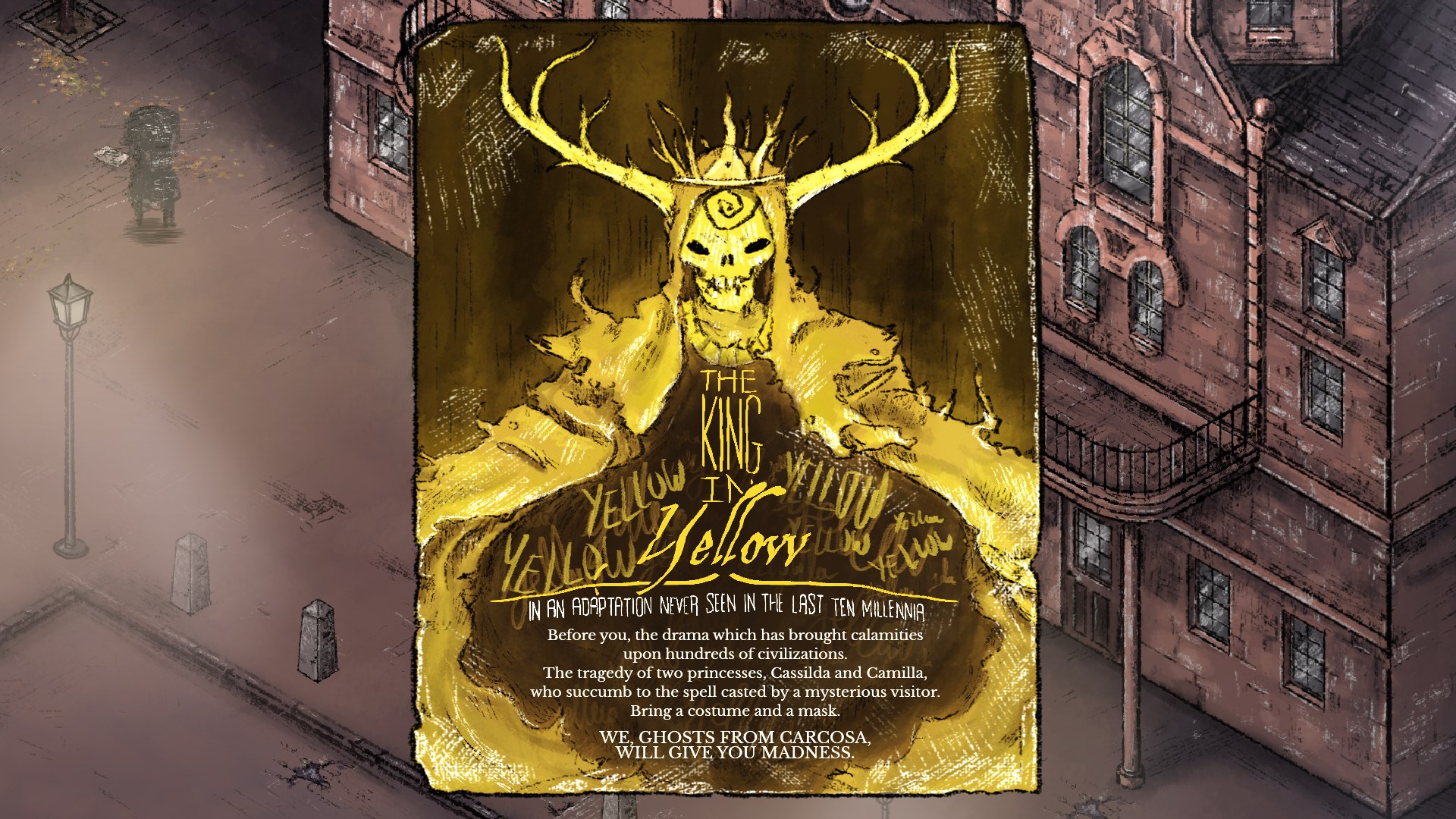
As the game begins, you arrives in a strange city after receiving a suicide letter from a childhood friend. Once there, you have 21 days to discover what caused your friend to kill himself, and to figure out the mysteries of the city before it falls into ruin. How this will come about is vague, but AlPixel tease that they’ve drawn inspiration from real-life events such as the destruction of Pompeii.
The game, which Luis describes as "pretty dark and pretty weird", will unfold differently for each player. Having inherited your friend’s business, you must develop relationships with clients and sell your wares across the city. You’ll have the chance to explore three distinct quarters (a total of 24 streets), which include parks, a city hall, police station, hospital, theatre, lighthouse, and other small establishments.
"We’re trying to avoid tasking players with quests. Not a single thing is mandatory," explains Luis. "You can actually reach the end of the story without leaving your bedroom. It'll take many hours and it's probably not the best way to play the game but you could still do that."
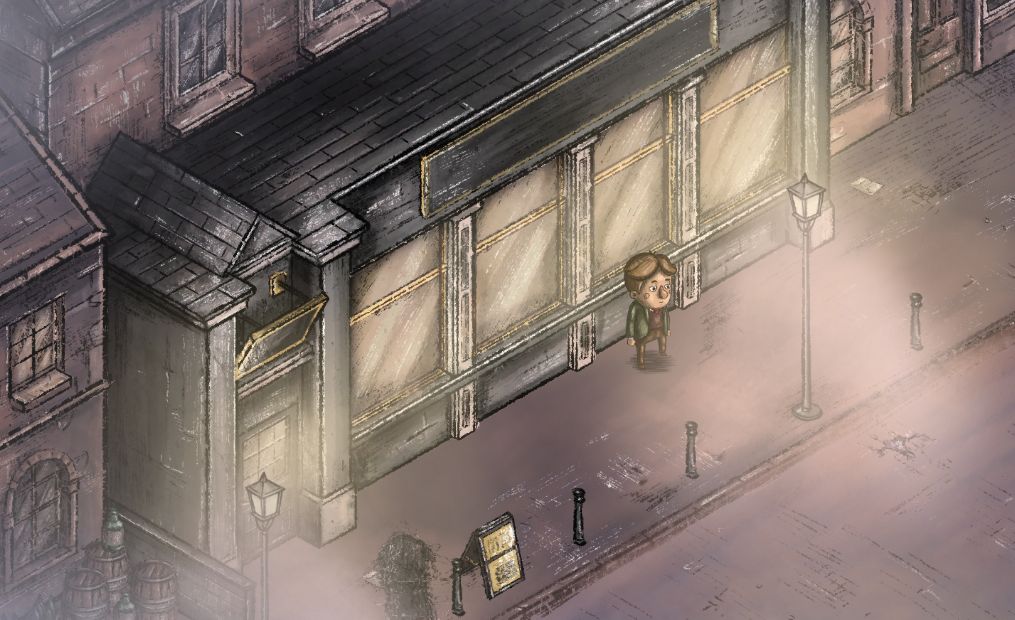
What makes the prospect more intriguing is that once you've finished the game, you can play it again to find different clues. On the team’s Kickstarter page, they cite the time-loop mechanics of Legend of Zelda: Majora’s Mask as an influence, as well as the gloomy visuals of Failbetter’s Sunless Sea. The team’s greatest inspiration, however, lay in Ron Gilbert’s Monkey Island, which they played avidly as children.
The biggest gaming news, reviews and hardware deals
Keep up to date with the most important stories and the best deals, as picked by the PC Gamer team.
"Monkey Island was a turning point," Luis says. "Great narrative games were already being made, but this one was a huge hit. Even people who don't usually play games are able to recognize it. There are developers making old-school point and click games because they want to tell a story and that's how they've experienced stories before in games."
Sure, blasting through a door while holding a gun makes you feel cool and powerful, but there's a certain beauty in the smaller things of life
Luis Díaz
A Place for the Unwilling is as beautiful as a chocolate box, a Victorian-era stage covered in mist and night, with a knot of buildings and streets you must navigate to discover the city’s secrets. There are houses scattered with items you can collect and shops filled with strange bottles and vials. And if there are corners of the city you don’t have a chance to explore, you can start the game again.
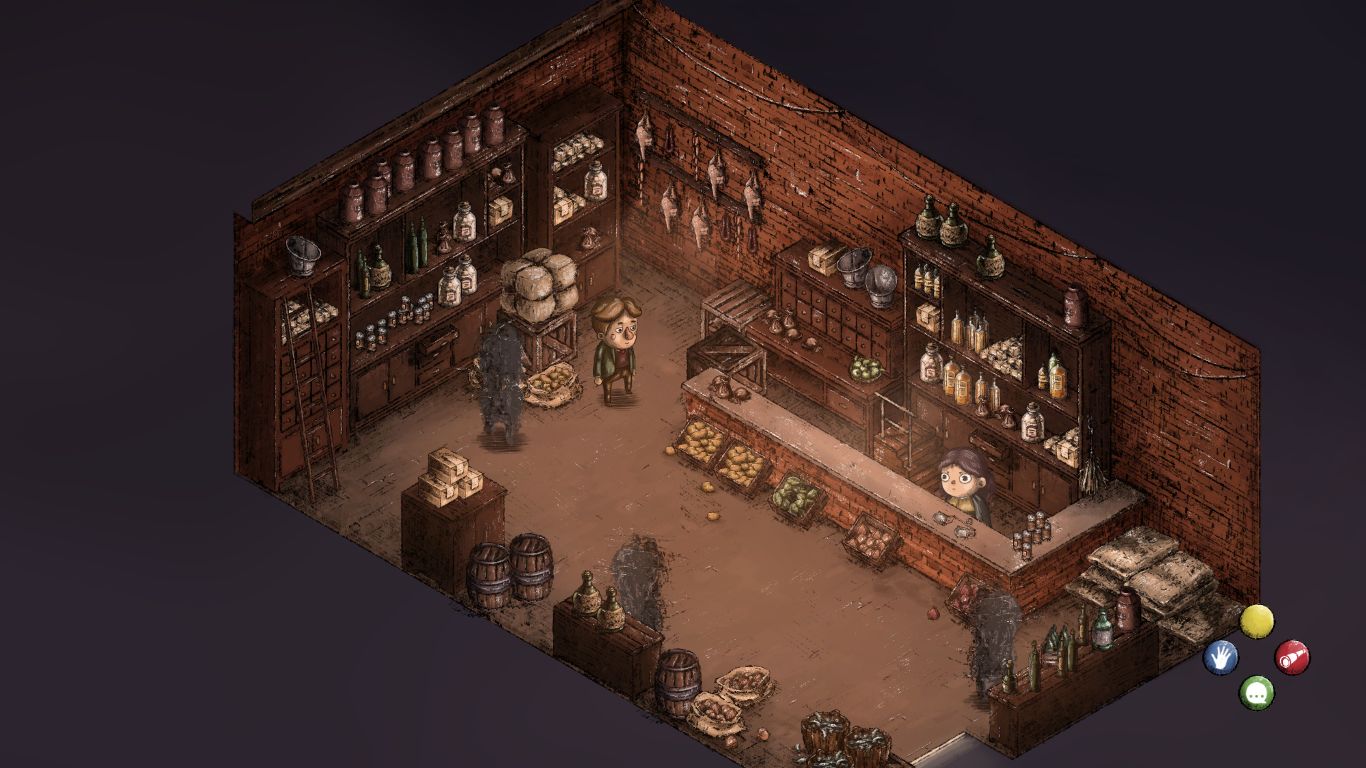
"How do we make a narrative game where every second matters?" asks Luis. "If there are a lot of things happening in the city and you don't have enough time to see them all, then time becomes a really valuable resource. Suddenly you're not only talking to people and following a script, you can choose to leave at any point and spend your time somewhere else. You're managing something precious and making meaningful decisions all the time."
Alpixel have said they want players to feel like a blank slate, so they provide the choice to create your own avatar and be a man or a woman. Whatever you choose, the team stress that your protagonist won’t be a stereotypical hero who’ll swoop in to save the city at the last minute.
"We had a couple of internal goals we set at the very beginning, one of them was avoiding typical power fantasies," says Luis. "There are too many games about heroes saving the day. Sure, blasting through a door while holding a gun makes you feel cool and powerful, but there's a certain beauty in the smaller things of life—having a quiet conversation with a friend, trying to help others or just enjoying a street concert. We felt this fitted perfectly with the concept of cities, where people as individuals aren't that important."
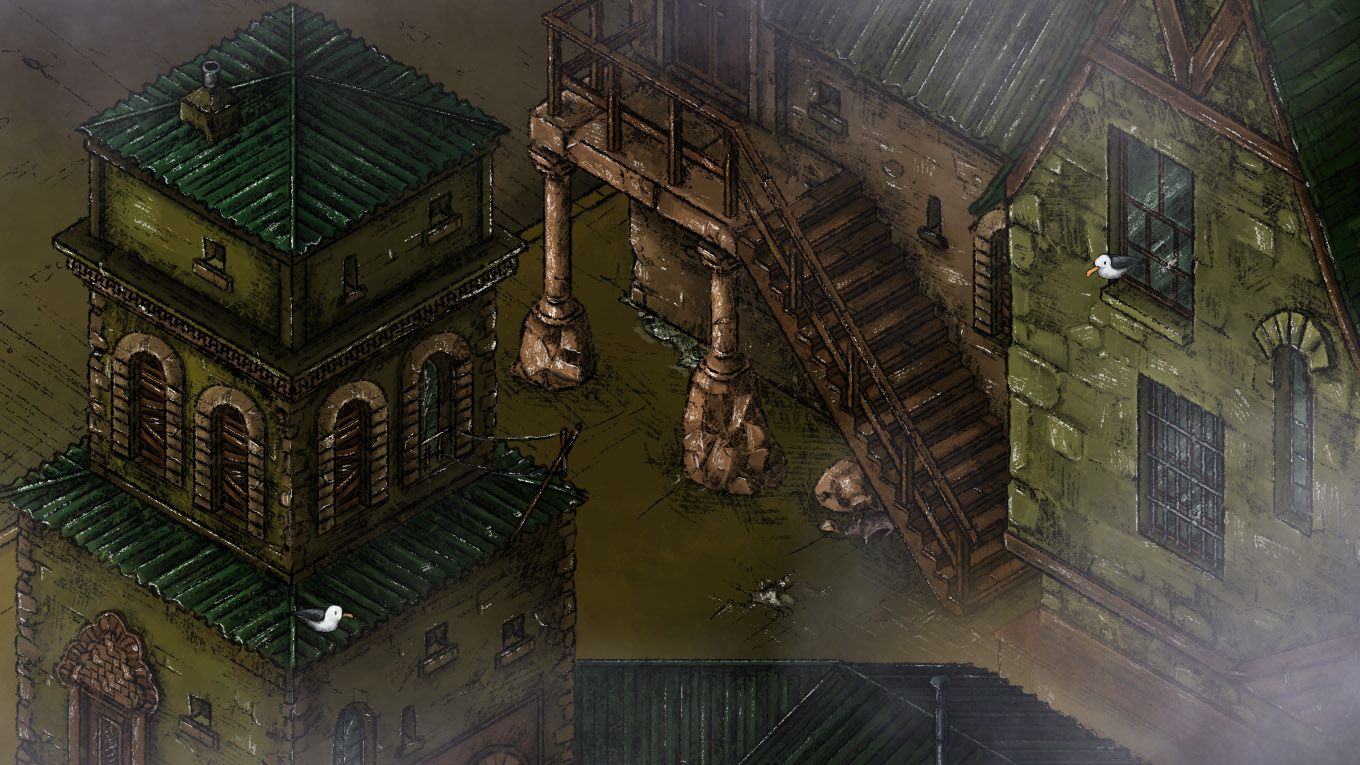
The team also throw away what you’d find in your typical open-world game. There is no world map showing where you should head next, and no progress report telling you what you need to do. Instead of populating the world with nameless NPCs, AlPixel has created 15 unique characters with delicately crafted identities and backstories. With so much attention to detail and a taste for perfection, has this been a monumental task for such a small team?
Let's just say Lovecraft is more than an important reference
Luis Díaz
"The challenges involved are quite big," admits Luis, "but they aren't the usual ones. Instead of trying to get physics right or designing complex puzzles we spend a huge amount of time giving life to the story. When you're working on a game with such a detailed background just managing all that information is a challenge."
One of the game’s most enticing prospects is the idea of the city as a living creature. But what does this really mean? Will it come to life? Will it become a grotesque tentacled monster, like you might see in a Lovecraft story? We brim with questions but the team remain teasingly tight-lipped.
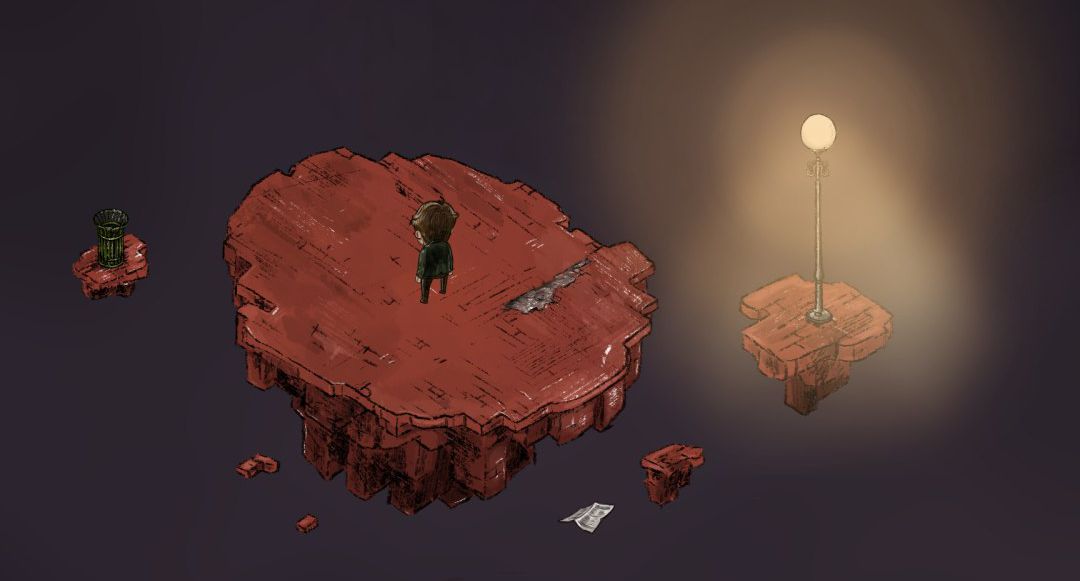
"I don't really know if it's possible to talk about this without spoiling some important parts of the story," says Luis. "Let's just say Lovecraft is more than an important reference—we're following his mythos and placing them in the very core of the world."
Narrative designer Ángel Luis Sucasas does, however, drop a small hint for us: "Dreamlands matter." Color us intrigued.
A Place for the Unwilling will be released in 2018.

